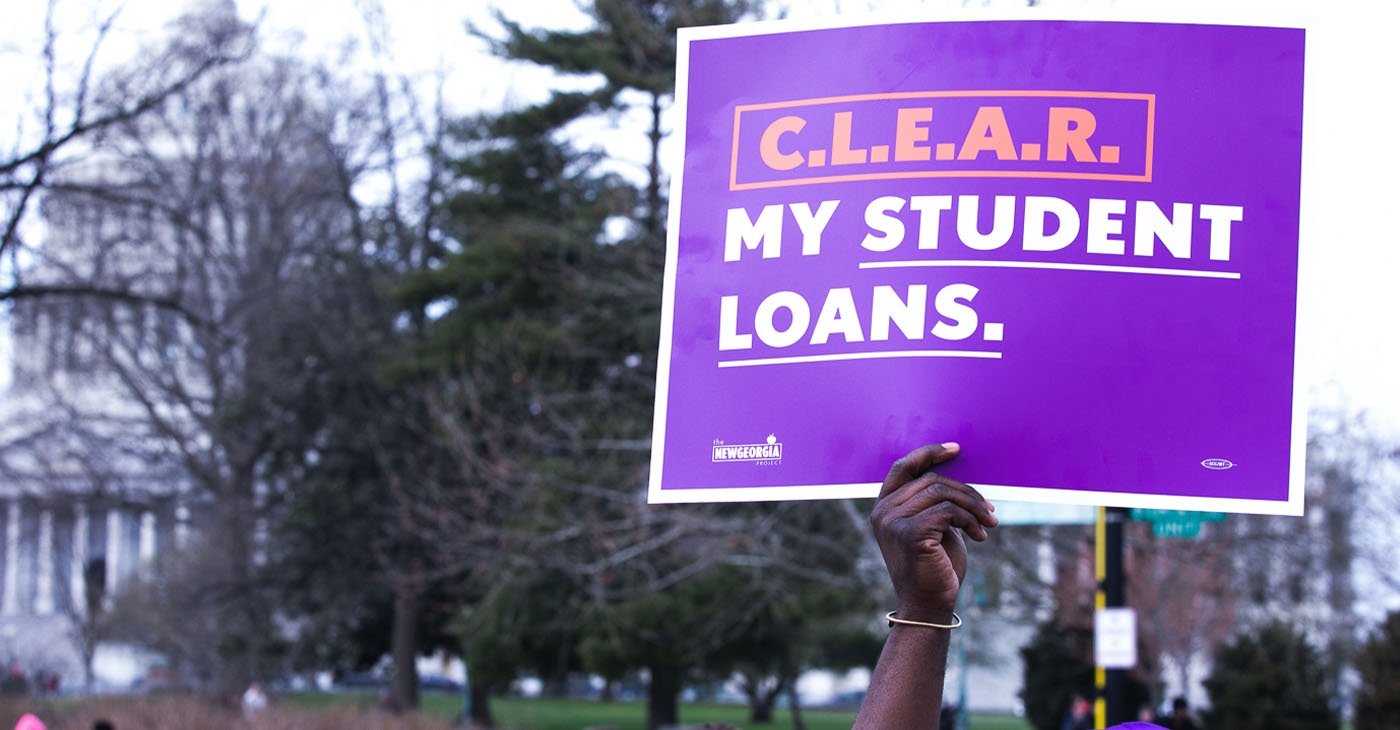By Stacy M. Brown, NNPA Senior National Correspondent
@StacyBrownMedia
Millions of student loan borrowers, particularly those of color, risk losing out on relief if the Supreme Court strikes down President Joe Biden’s student loan debt forgiveness plan.
The plan, which aims to forgive or reduce the student loan debt held by the millions of eligible Americans that qualify for the program, has faced opposition from Republican-appointed judges on lower courts and now faces an uncertain future as it is being challenged before the land’s highest court.
In a three-hour-long argument on Tuesday, Chief Justice John Roberts led his conservative colleagues in questioning the administration’s authority to cancel federal student loans due to the COVID-19 emergency broadly.
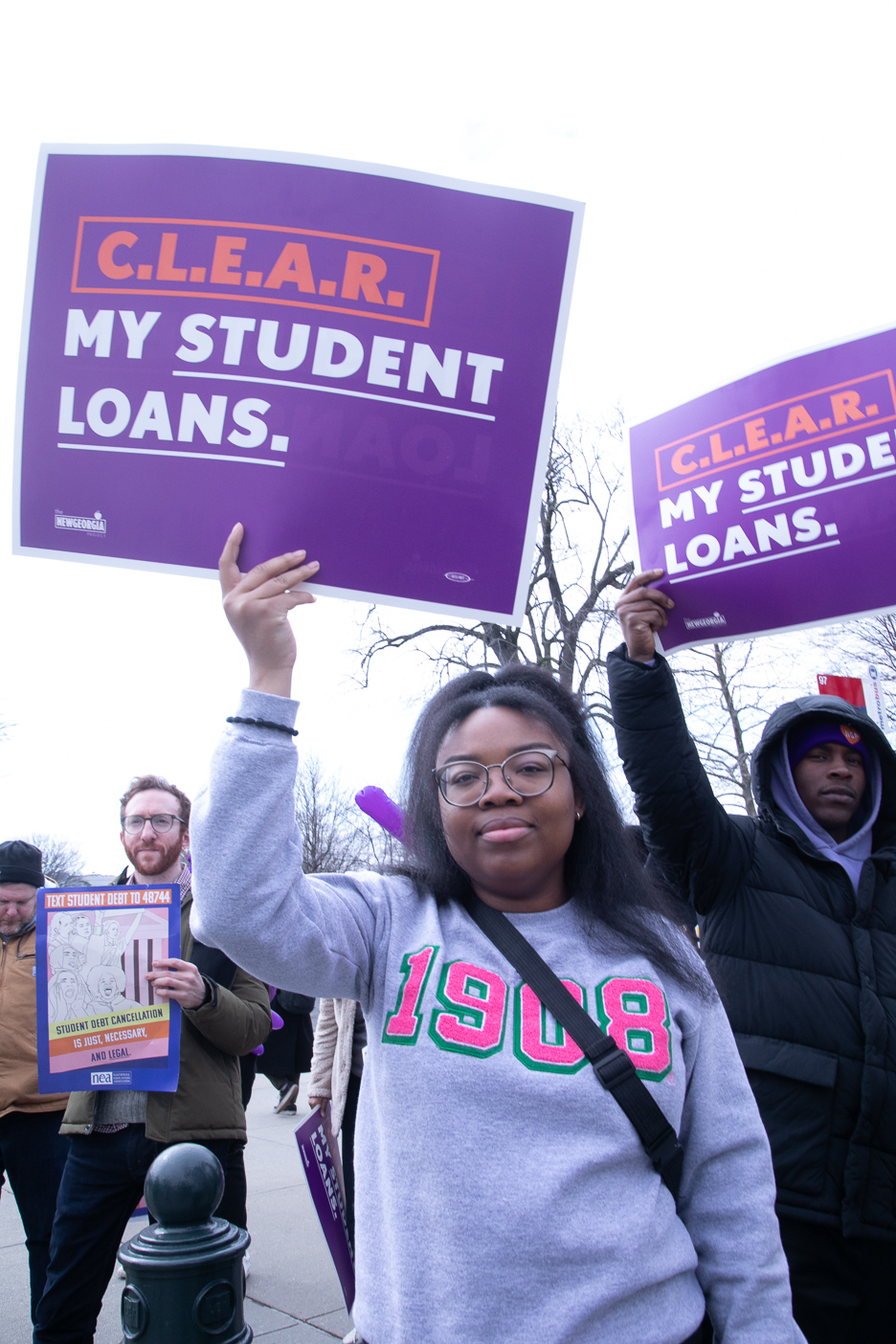
Photos for the NNPA by Mark Mahoney / Dream In Color Photography
It remains unclear whether any of the six justices appointed by Republican presidents will approve the debt relief program. However, Justices Brett Kavanaugh and Amy Coney Barrett appeared most open to the administration’s arguments.
As the Supreme Court heard oral arguments, demonstrators converged on the nation’s capital to showcase their support for debt relief.
The People’s Rally for Student Debt Cancellation was the largest-ever mass demonstration by people with student debt in front of the Supreme Court, bringing together individuals from across party lines, industries, faith communities, socioeconomic statuses, and cities and states throughout the country.
Speakers at the rally emphasized the legality and urgency of President Biden’s relief action, citing the ongoing economic distress caused by COVID-19 on borrowers and the history of abuse and mismanagement throughout the student loan system.
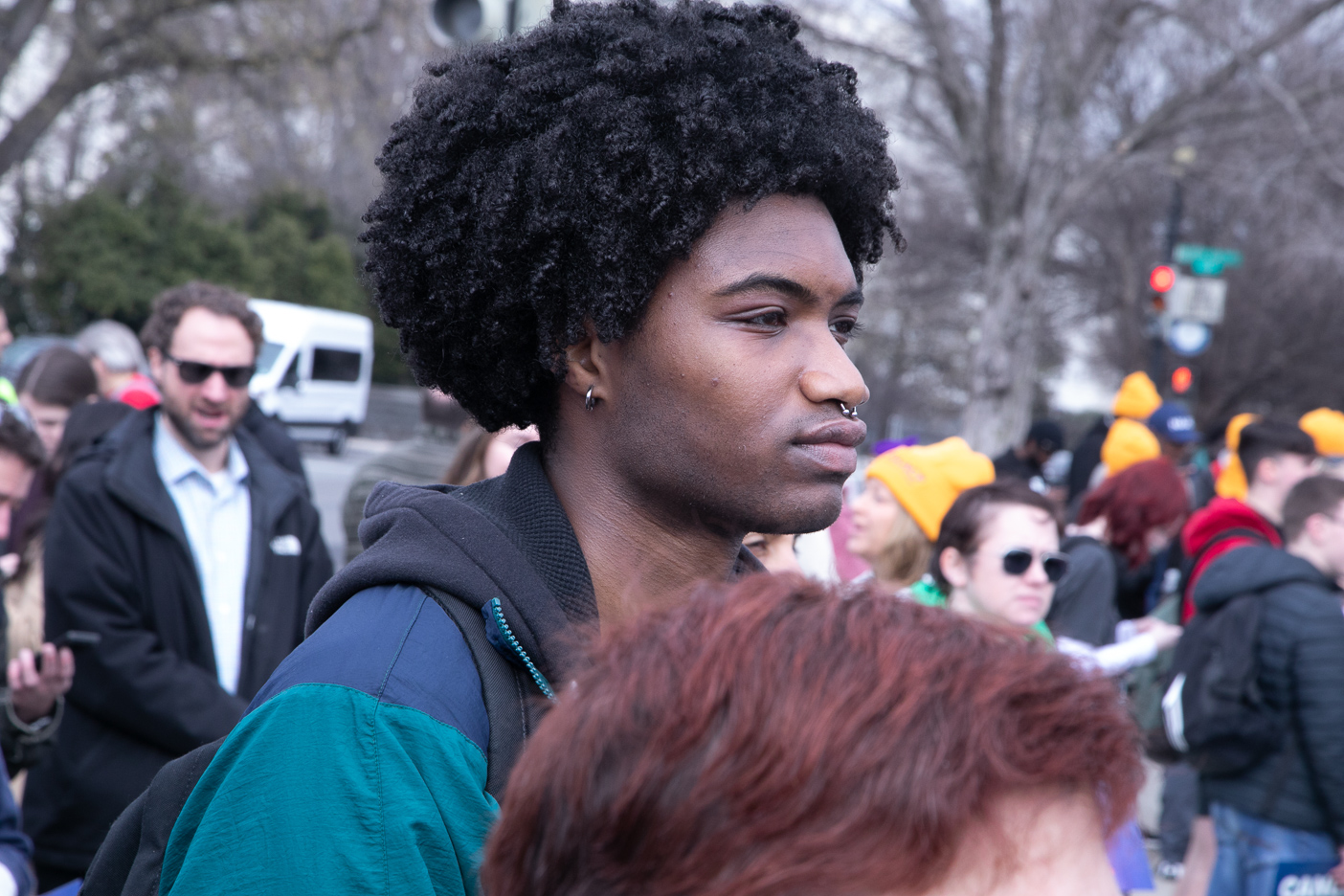
Photos for the NNPA by Mark Mahoney / Dream In Color Photography
Organizations representing millions of borrowers and supporters co-sponsored the rally to show the broad and growing support for debt relief.
If the Supreme Court strikes down President Biden’s plan, it will negatively impact millions of borrowers, particularly those of color. The administration says that 26 million people have each applied for up to $20,000 in federal student loans forgiven under the plan.
If the plan isn’t allowed to take effect before a three-year pandemic-inspired pause on loan repayments ends no later than this summer, “defaults and delinquencies will surge above pre-pandemic levels,” according to U.S. Solicitor General, Elizabeth Prelogar.
The debt relief program has faced opposition from Republican-led states and lawmakers in Congress, as well as conservative legal interests, who argue that it is a clear violation of Biden’s executive authority.
They claim that the plan is not necessary now to keep defaults roughly where they were before the pandemic and that the 20 million borrowers who would have their entire loans erased would get a “windfall,” leaving them better off than before the pandemic.
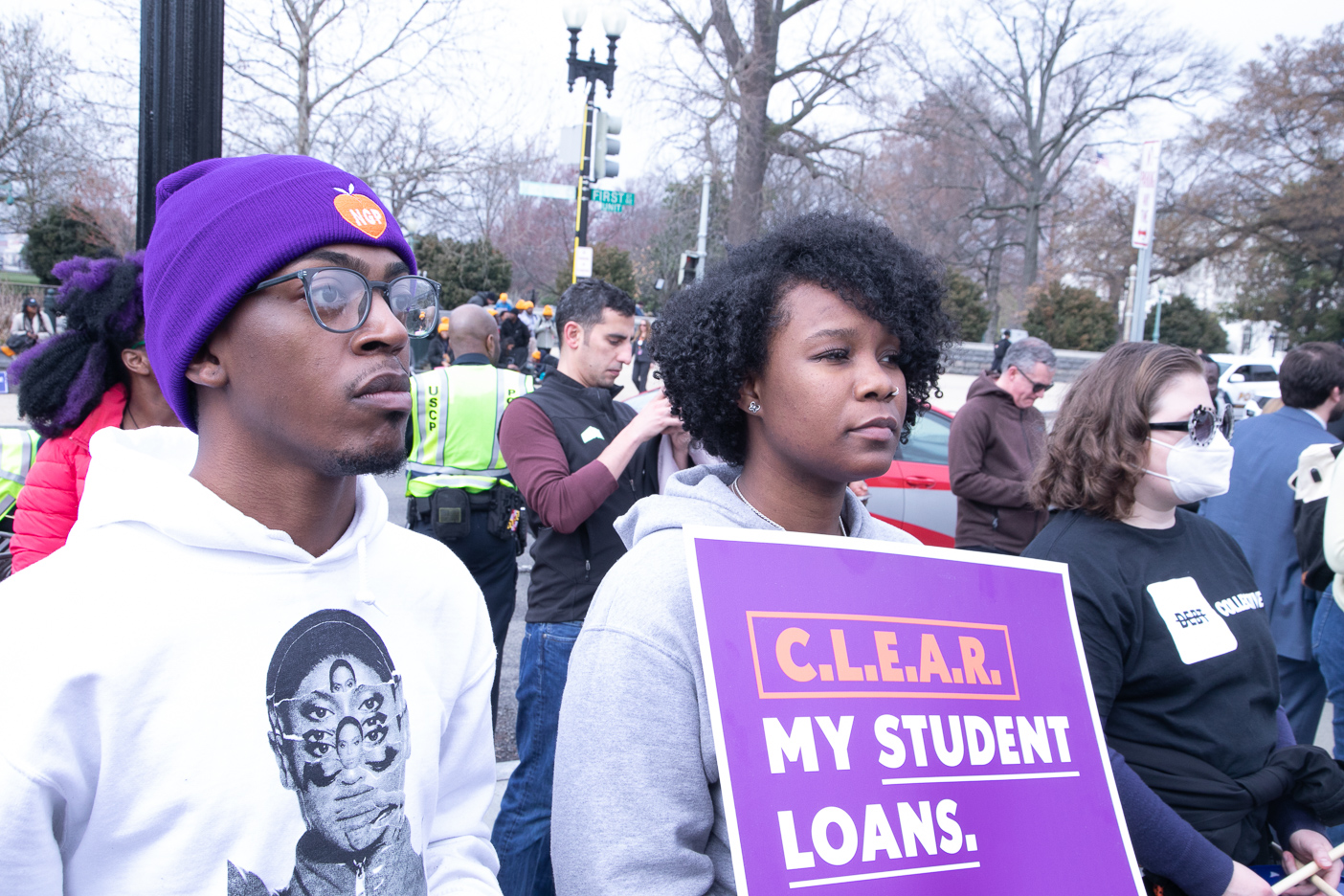
The administration argues that a 2003 law, commonly known as the HEROES Act, allows the Secretary of Education to waive or modify the terms of federal student loans in connection with a national emergency.
The law was primarily intended to keep service members from becoming worse off financially while fighting in Afghanistan and Iraq wars.
The Supreme Court’s conservative majority has questioned the administration’s authority to implement the debt relief program, with Chief Justice John Roberts pointing to the vast impact and expense of the program, estimating that it would cost “a half-trillion dollars.” Kavanaugh suggested that the administration was using an “old law” to implement a debt relief program that Congress had rejected unilaterally.
However, some speakers at the rally argue that the student loan system has a history of abuse and mismanagement that disproportionately negatively impacts people of color. Advocates point out that Black and Latinx borrowers, for example, are more likely to take on debt to attend college and that they are also more likely to struggle to repay those loans.
The issue of student loan debt relief has also become a political issue, with Democrats predominantly supporting President Biden’s plan and Republicans opposing it.
Debt relief advocates say it is necessary to address the financial burden that student loan debt places on individuals and the broader economy, particularly during the ongoing pandemic.
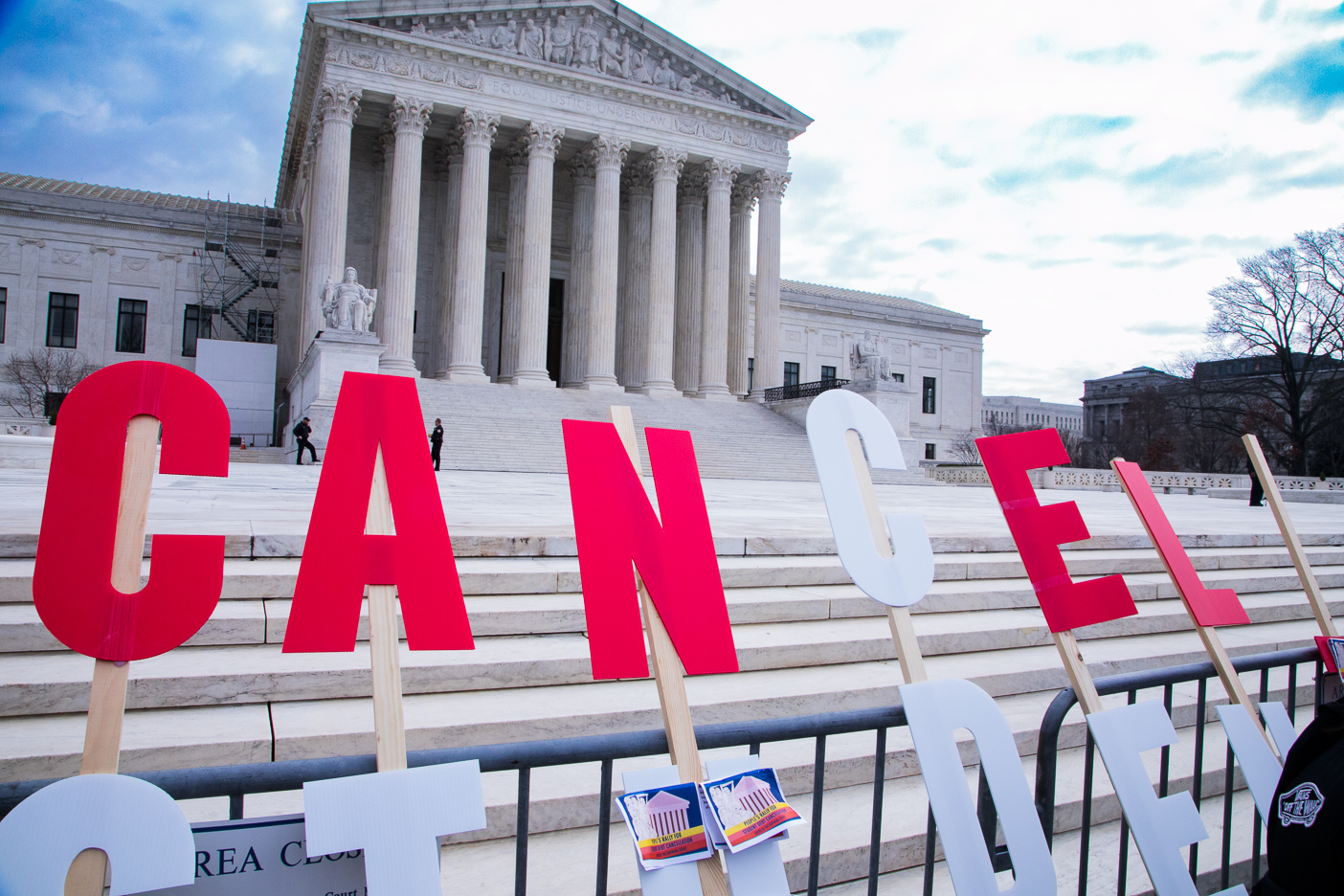
Photos for the NNPA by Mark Mahoney / Dream In Color Photography
The post SCOTUS Poised to Rule Against Student Loan Forgiveness as Protestors Rally to Save Biden’s Plan first appeared on BlackPressUSA.

